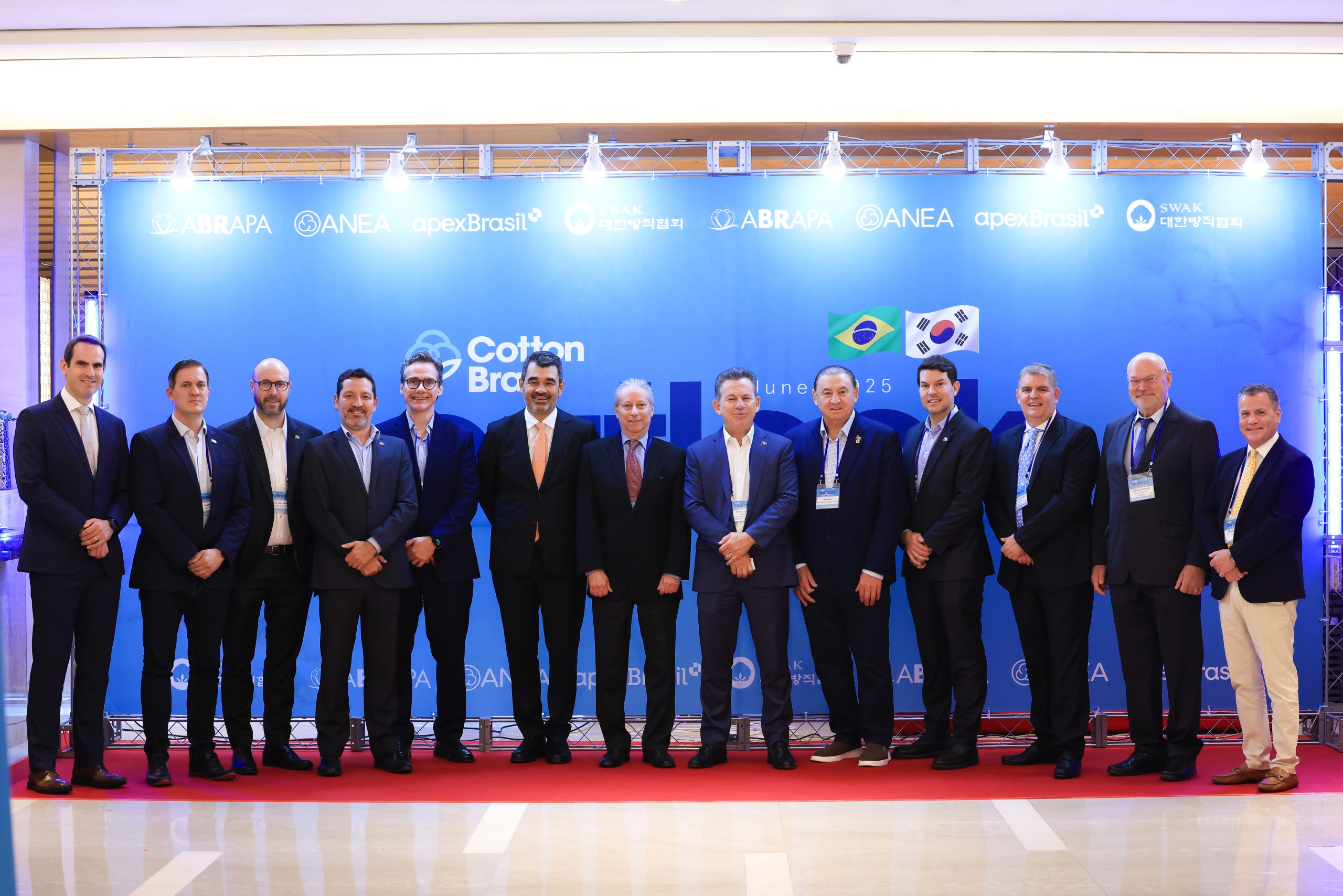
Decades of intense work and significant investment in innovation and technology have raised Brazilian cotton’s transparency and origin tracking to a new level.
Today, Brazil is one of the few countries with bale-by-bale traceability, providing complete data on quality parameters, origin, and socio-environmental certifications. Over 15 million bales are identified per crop, each carrying a unique code that identifies:

Origin:
producer, production unit, and socio-environmental certifications

Ginning plants:
socio-environmental certification

Laboratories:
fiber quality analysis responsible Unit

HVI result:
data per bale
The traceability label for Brazilian cotton, provided by the Abrapa Identification System (SAI), serves as the cotton’s “ID.” Each bale receives a label with a barcode or QR code, allowing traceability from field to port. This label contains detailed information on the producer, cultivation region, harvest process, and cotton quality assessed through HVI analysis.
Accessing this data is as easy as scanning the QR code on the label, entering the barcode into Abrapa’s online system, or via the app. This total transparency allows buyers, companies, and consumers to know precisely where their cotton originates and trust its quality and sustainable production process.
D • The press number
E • The bale number
F • The check digit



Each bale has a barcode and serial number for accessing its respective information. Just go to the tracking page, identify the desired bale, and access the data.

Each bale also has a QR code accessible via mobile. Just scan it with the camera on your phone for immediate access to all information.

With the Abrapa app, users can not only track individual bales but also check batches. Fill in the form with your details and view the information.

Looking to the future, the SouABR program in Brazil allows full traceability of cotton garments, showing the consumer the certified cotton journey and the entire responsible production chain. Just scan the QR Code on the garment’s tag to access ABR-certified farms, spinning, weaving, or knitting, manufacturing, and re tail. This transparency is made possible through blockchain technology, which secures each data point and ensures the authenticity of information.
This mechanism creates a tangible connection between the consumer and the production process, enabling each piece to tell the story of its journey from cotton farming to our customer’s hands. For us, telling this story is critical—it’s our commitment to responsibility and transparency.”

C&A Commercial Director